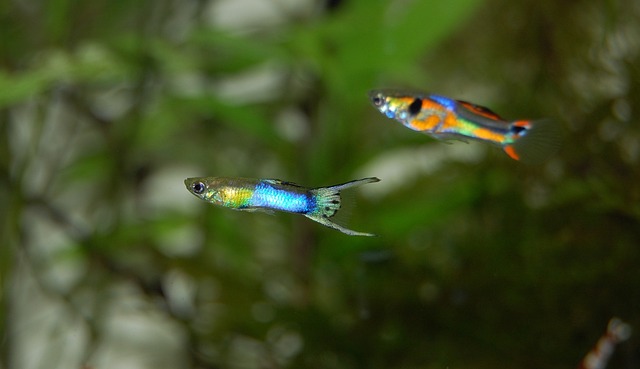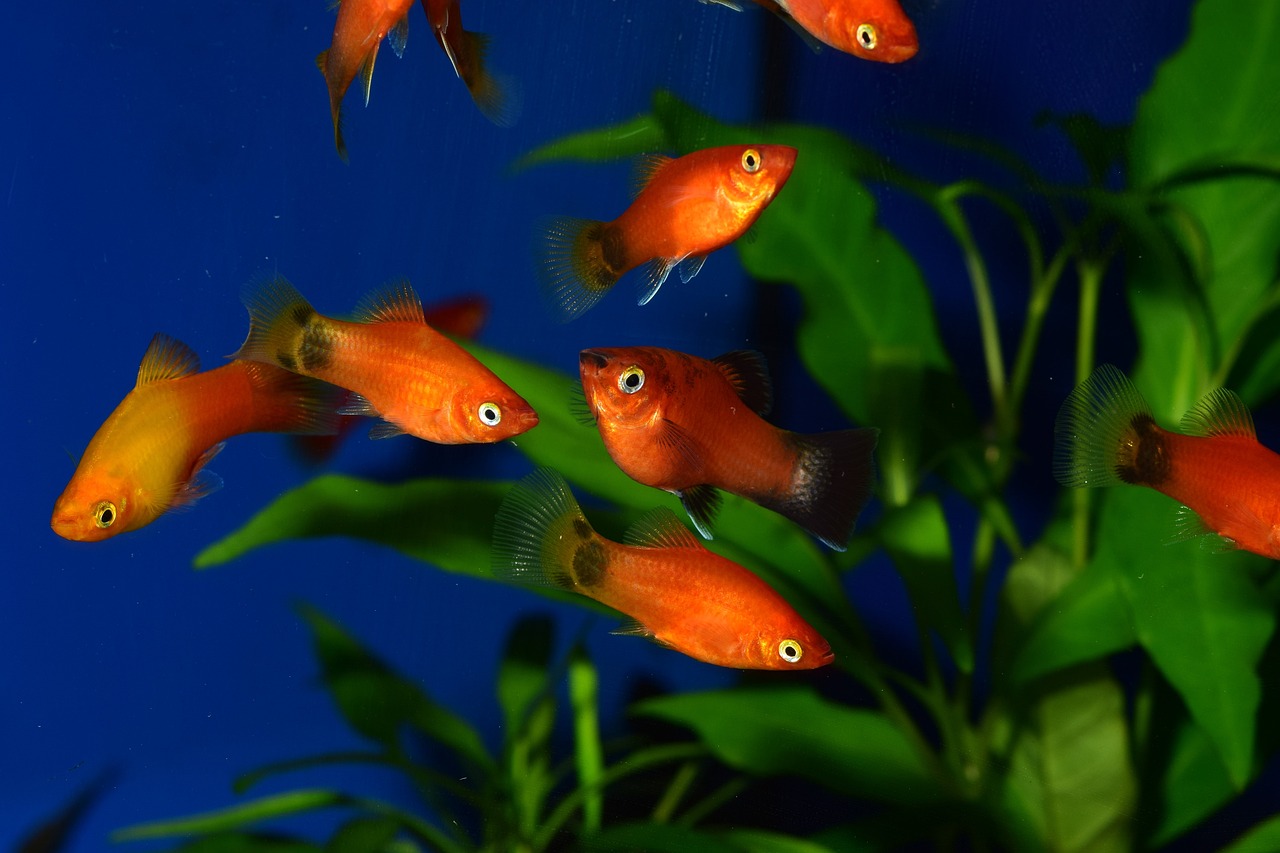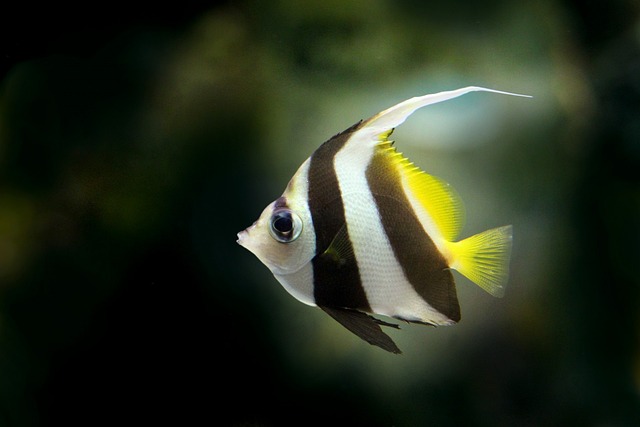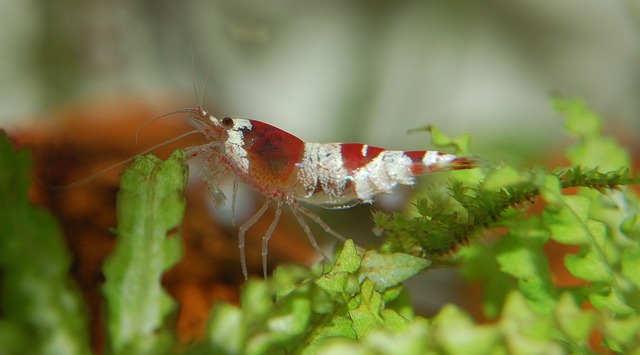Pet Fish: A Comprehensive Guide to Choosing, Caring for, and Enjoying Your Aquatic Companions
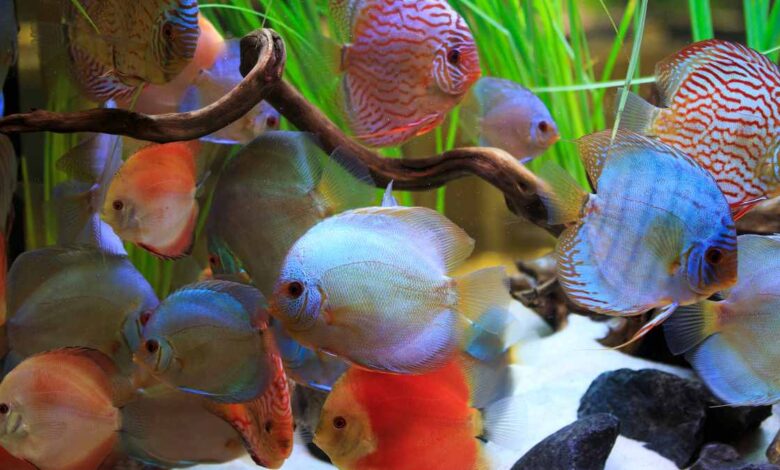
Pet fish are aquatic animals that are kept in an aquarium or pond as companion animals. They come in a variety of shapes, sizes, and colors, and can be a great way to add some life and interest to your home.
Table of Contents
Introduction
Pet fish have long been admired for their captivating beauty and calming presence. The allure of keeping these mesmerizing aquatic creatures in home aquariums has been a popular hobby for generations. If you are considering becoming a proud fish owner, this comprehensive guide will walk you through everything you need to know about pet fish – from selecting the right species to providing them with a thriving environment.
The Fascinating World of Pet Fish
The Popularity of Pet Fish
Pet fish ownership has skyrocketed in recent years, and it’s no surprise why. These delightful creatures require less space and attention compared to other pets, making them an excellent choice for individuals and families with busy lifestyles. The appeal of having a bit of nature indoors has attracted people from all walks of life to the world of fish keeping.
The Benefits of Owning Pet Fish
Beyond the aesthetic charm, pet fish can offer numerous benefits to their owners. Studies have shown that observing fish in an aquarium can help reduce stress, anxiety, and even lower blood pressure. Taking care of fish can also instill a sense of responsibility, making it an ideal option for teaching kids about pet care.
Choosing the Right Fish for You
Freshwater vs. Saltwater Fish
Before diving into the world of fishkeeping, you need to decide between freshwater and saltwater fish. Each has its own unique challenges and rewards, and understanding the differences is crucial to making the right choice for your lifestyle and preferences.
Considerations for Beginners
If you’re new to fishkeeping, it’s best to start with hardy and low-maintenance fish species. These resilient creatures can tolerate minor fluctuations in water conditions and are more forgiving during the learning process.
Researching Different Species
Every fish species has its own set of requirements and characteristics. Researching the behavior, diet, and care needs of different fish will help you find the perfect match for your aquarium.
Setting Up the Perfect Aquarium
Selecting the Ideal Tank Size
The size of your aquarium plays a crucial role in the health and happiness of your fish. Larger tanks generally provide more stable water conditions and allow for a more diverse selection of fish.
Essential Equipment and Decorations
To create a thriving aquatic habitat, you’ll need various pieces of equipment, including filters, heaters, and lighting. Additionally, adding decorations like rocks and plants not only enhances the aesthetic appeal but also provides hiding spots and play areas for your fish.
Creating a Suitable Environment
Maintaining a healthy environment for your fish involves proper water conditioning and cycling. Understanding the nitrogen cycle and the significance of water parameters will contribute to the well-being of your fish.
Feeding Your Fish for Optimal Health
Understanding the Dietary Needs of Fish
Different fish species have diverse dietary requirements. Some are herbivores, some are carnivores, and others are omnivores. Providing a balanced diet is essential for the overall health and vibrancy of your fish.
Types of Fish Food
Commercial fish food comes in various forms, such as flakes, pellets, and frozen or live options. Choosing the right food and offering occasional treats will keep your fish happy and thriving.
Feeding Frequency and Portion Control
Overfeeding is a common mistake among fish owners. Knowing how often and how much to feed your fish will prevent health issues caused by overeating.
Maintaining Water Quality
The Importance of Clean Water
Clean and well-maintained water is vital for the health of your fish. Poor water quality can lead to stress, disease, and even fatalities among your aquatic companions.
Regular Water Testing and Changes
Regularly testing the water parameters and performing partial water changes are essential tasks in fishkeeping. These measures help control ammonia, nitrite, and nitrate levels, ensuring a stable and safe environment for your fish.
Avoiding Common Water Quality Issues
Fishkeepers often encounter issues like algae blooms and cloudy water. Understanding the causes of these problems and implementing preventative measures will help you maintain crystal-clear water in your aquarium.
Ensuring the Well-Being of Your Pet Fish
Monitoring Fish Behavior and Health
Keeping a close eye on your fish’s behavior and appearance can indicate any underlying health issues. Quick action and proper treatment are crucial in providing the best chance of recovery.
Preventing and Handling Fish Illnesses
Fish can fall ill due to various reasons, including stress, poor water quality, or contagious diseases. Knowing how to identify, treat, and prevent illnesses will help you keep your fish in optimal condition.
The Art of Aquarium Aquascaping
Creating an Aesthetically Pleasing Tank
Aquascaping is the art of arranging aquatic plants, rocks, and decor in a visually appealing manner. A well-designed aquarium can resemble a natural underwater landscape, enhancing the beauty of your fish habitat.
Balancing Flora and Fauna
Choosing the right plants and fish that coexist harmoniously is essential for a successful aquascape. The interplay between flora and fauna creates a balanced ecosystem within the aquarium.
Breeding and Reproduction
Understanding Fish Reproduction
Fish reproduction varies significantly between species. Learning about the breeding behavior and requirements of your fish can lead to successful reproduction if you wish to breed them.
Breeding Challenges and Tips
Breeding fish can be a rewarding experience, but it comes with its own set of challenges. Understanding the difficulties and taking necessary precautions will increase your chances of success.
Common Mistakes to Avoid
Overfeeding Your Fish
Overfeeding is a common pitfall that can lead to poor water quality and fish health issues. Moderation and portion control are key when it comes to feeding your fish.
Neglecting Water Quality
Maintaining water quality is paramount in fishkeeping. Ignoring regular water testing and changes can have severe consequences for your fish.
Not Researching Fish Compatibility
Introducing incompatible fish into your aquarium can lead to aggression and stress among the inhabitants. Proper research on fish compatibility is essential to maintain a harmonious tank.
Enhancing Your Fish-Keeping Experience
Joining Fishkeeping Communities
Engaging with fellow fishkeepers in online forums or local clubs can provide valuable insights, tips, and support. Sharing experiences and knowledge with like-minded individuals enhances the joy of fishkeeping.
Attending Aquatic Events and Exhibitions
Participating in aquatic events and exhibitions allows you to discover new fish species, products, and trends in the fishkeeping world. It’s a fantastic opportunity to expand your knowledge and connect with industry experts.
The Joy of Pet Fish – Personal Stories
Bonding with Aquatic Companions
Fishkeeping often fosters deep bonds between owners and their fish. Personal anecdotes of these special connections demonstrate the emotional rewards of having pet fish.
Therapeutic Benefits of Aquariums
The tranquil and serene nature of aquariums has therapeutic effects on people. Numerous stories highlight how watching fish can alleviate stress and promote relaxation.
Conclusion
Pet fish are more than just captivating creatures; they are living companions that bring joy, beauty, and a sense of calm into our lives. By selecting the right fish, creating a suitable environment, and providing proper care, you can ensure a rewarding and long-lasting relationship with your aquatic companions.
FAQs
Can I Keep Different Fish Species Together?
It depends on the species compatibility and temperament. Research thoroughly before introducing new fish to your aquarium.
How Often Should I Clean the Fish Tank?
Regular maintenance is essential to keep the tank clean and the water quality high. Aim for partial water changes every 1 to 2 weeks.
What Do I Do If My Fish Gets Sick?
Isolate the sick fish in a quarantine tank and seek advice from a fish veterinarian or experienced fishkeeper.
How Long Do Pet Fish Live?
The lifespan of pet fish varies greatly depending on the species. Some may live for a few years, while others can live for several decades.
Can I Keep a Saltwater Aquarium as a Beginner?
While it’s possible, freshwater aquariums are generally more beginner-friendly due to their lower complexity and cost. Saltwater aquariums require additional equipment and maintenance expertise.
List of Pet Fish:
- Guppies
- Platies
- Mollies
- Angelfish
- Neon Tetras
- Zebra Danios
- Swordtails
- Cories
- Shrimp


